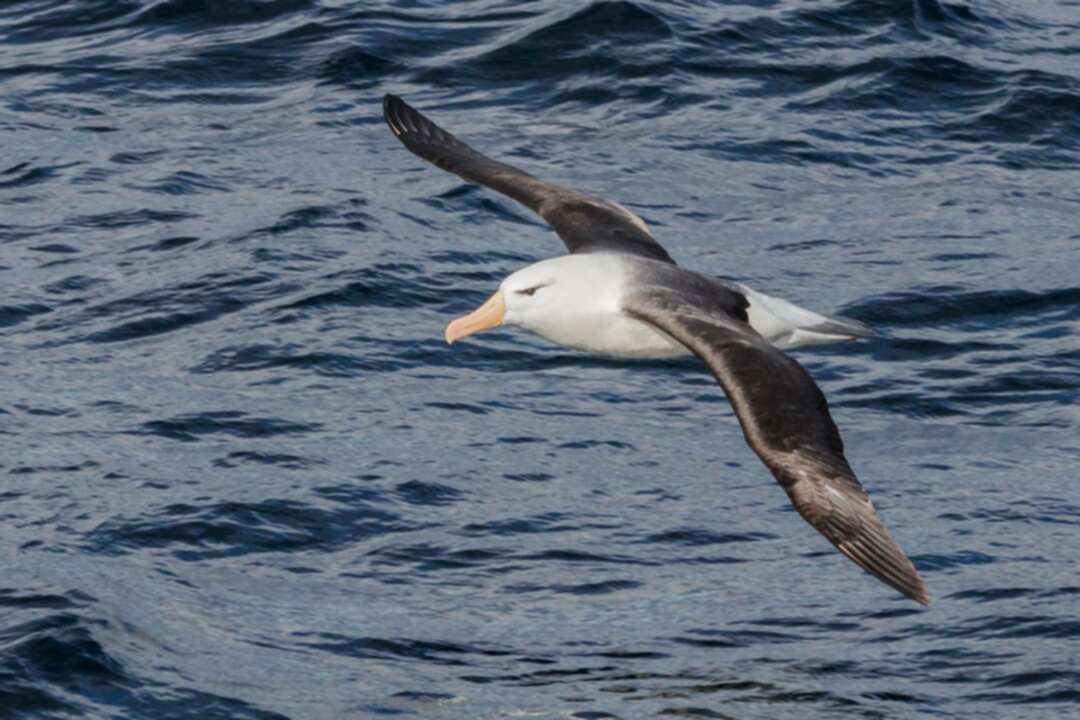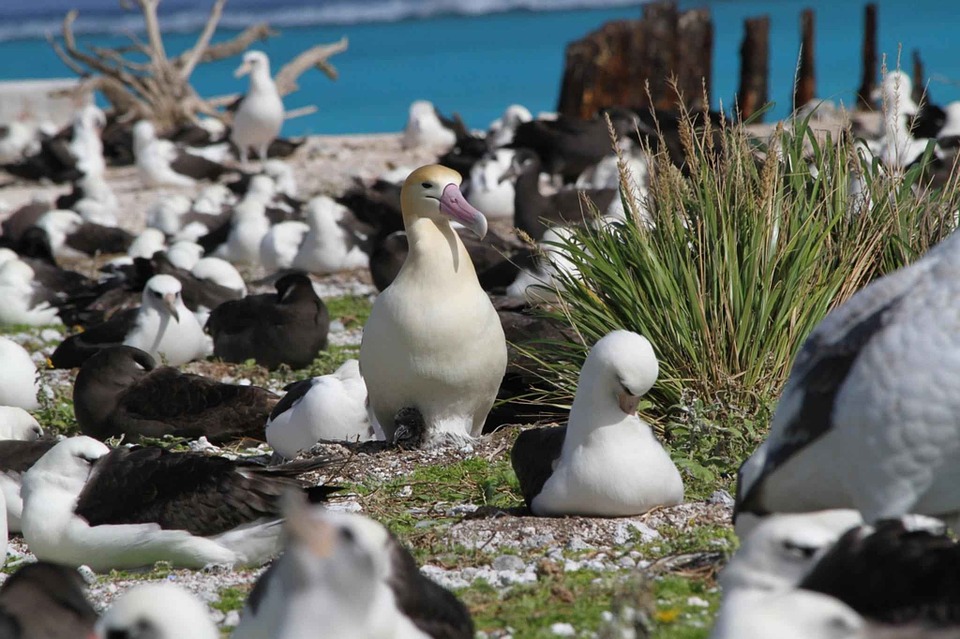-
Study says climate change causing albatross divorce

In its report on the link between climate change and albatross divorce, the BBC said when relationships end it might be because the spark has disappeared, or maybe you just can't make time for one another. But can climate change cause break-ups?
It might do, according to a new study which suggests albatrosses - some of the world's most loyal creatures - are "divorcing" more.
Research published in the Royal Society journal looked at 15,500 breeding pairs in the Falkland Islands over 15 years.
Albatross divorce is basically just cheating, in human terms. It's when one part of a couple mates with a different individual.
 Albatrosses-Sea bird/Pixabay
Albatrosses-Sea bird/PixabayLike humans, albatrosses also have an awkward growing-up phase, trying (and sometimes failing) to figure out the best way to get into a relationship.
But ultimately, when they find a good match, they normally stick together for life.
Read more: Fall in COVID testing threatens to undermine India’s efforts to contain pandemic
ust 1% of albatrosses separate after choosing their life partner - much lower than the human divorce rate in the UK.
"Monogamy and long-term bonds is very common for them," says Francesco Ventura, researcher at the University of Lisbon and co-author of the study.
But in the years covered by the study with warmer water temperatures, up to 8% of albatross couples split up.
'Environmentally-driven divorce'
The study says "environmentally-driven divorce may be an overlooked consequence" of climate change.
Normally, albatross divorce is triggered when a pair fail to breed, so they find new partners in the next breeding season.
But the findings showed pairs were divorcing even if they'd had a successful breeding season
Read more: 25 out of 98 candidates disqualified for Libya’s presidential election
Francesco says there are two possible theories for the rise - the first one being linked to the struggles of a long-distance relationship.
Warming waters force the birds to hunt for longer and fly further.
If birds then fail to return in time for a breeding season, their partners may move on with a new partner.
Another theory is albatross stress hormones go up in harsher environments, such as when waters are warmer.
Francesco says, with tougher breeding conditions, and food scarcity, it can cause more stress and a partner can be blamed for their "poor performance" - which can ultimately trigger divorce.
Read more: Malawi Agriculture Minister asks Mike Tyson to become cannabis ambassador
The research comes as many international albatross populations are in trouble.
Some data from 2017 suggests the number of breeding pairs of the species are a little more than half of what they were in the 1980s.
Francesco says in the Falkland Islands, it's not an immediate concern for the population - but in other areas where the population of albatross is limited, it is a worry.
He says: "Temperatures are going up and will go up, so this might introduce more disruptions."
Source: BBC
You May Also Like
Popular Posts
Caricature
BENEFIT Sponsors BuildHer...
- April 23, 2025
BENEFIT, the Kingdom’s innovator and leading company in Fintech and electronic financial transactions service, has sponsored the BuildHer CityHack 2025 Hackathon, a two-day event spearheaded by the College of Engineering and Technology at the Royal University for Women (RUW).
Aimed at secondary school students, the event brought together a distinguished group of academic professionals and technology experts to mentor and inspire young participants.
More than 100 high school students from across the Kingdom of Bahrain took part in the hackathon, which featured an intensive programme of training workshops and hands-on sessions. These activities were tailored to enhance participants’ critical thinking, collaborative problem-solving, and team-building capabilities, while also encouraging the development of practical and sustainable solutions to contemporary challenges using modern technological tools.
BENEFIT’s Chief Executive Mr. Abdulwahed AlJanahi, commented: “Our support for this educational hackathon reflects our long-term strategic vision to nurture the talents of emerging national youth and empower the next generation of accomplished female leaders in technology. By fostering creativity and innovation, we aim to contribute meaningfully to Bahrain’s comprehensive development goals and align with the aspirations outlined in the Kingdom’s Vision 2030—an ambition in which BENEFIT plays a central role.”
Professor Riyadh Yousif Hamzah, President of the Royal University for Women, commented: “This initiative reflects our commitment to advancing women in STEM fields. We're cultivating a generation of creative, solution-driven female leaders who will drive national development. Our partnership with BENEFIT exemplifies the powerful synergy between academia and private sector in supporting educational innovation.”
Hanan Abdulla Hasan, Senior Manager, PR & Communication at BENEFIT, said: “We are honoured to collaborate with RUW in supporting this remarkable technology-focused event. It highlights our commitment to social responsibility, and our ongoing efforts to enhance the digital and innovation capabilities of young Bahraini women and foster their ability to harness technological tools in the service of a smarter, more sustainable future.”
For his part, Dr. Humam ElAgha, Acting Dean of the College of Engineering and Technology at the University, said: “BuildHer CityHack 2025 embodies our hands-on approach to education. By tackling real-world problems through creative thinking and sustainable solutions, we're preparing women to thrive in the knowledge economy – a cornerstone of the University's vision.”
opinion
Report
ads
Newsletter
Subscribe to our mailing list to get the new updates!






















